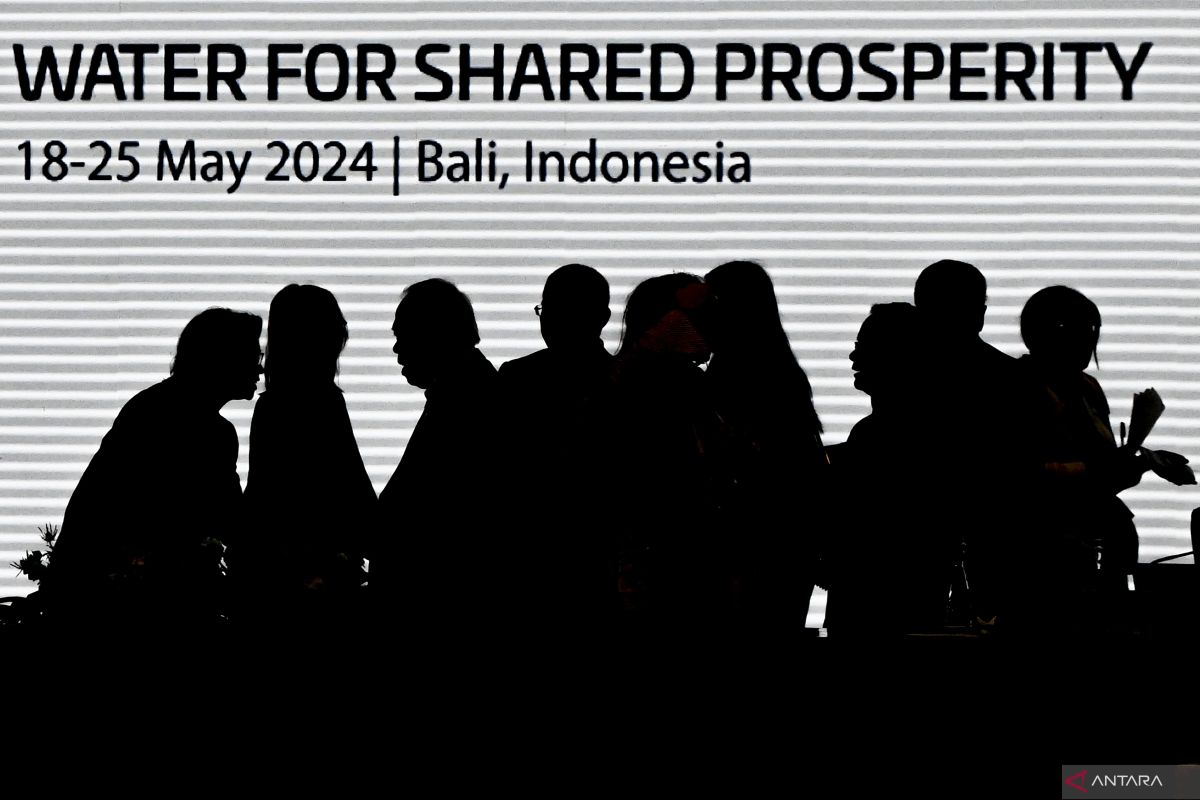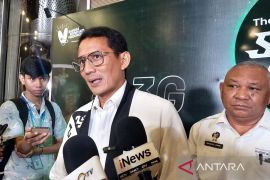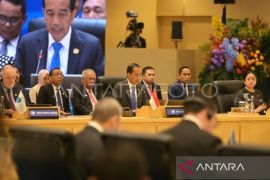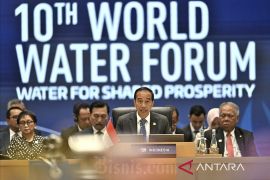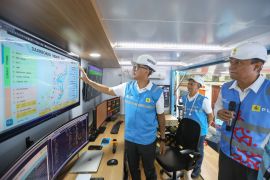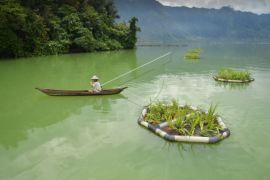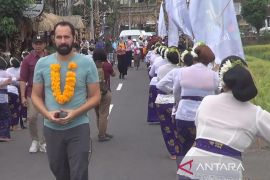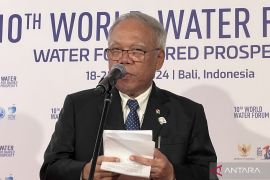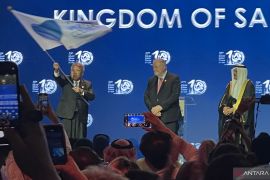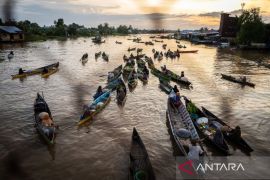As a developing nation, Indonesia still needs to drive development in various sectors to improve the quality of life of its people. To this end, the development of water infrastructure is considered to play an important role in achieving this target.
Addressing the heads of state present at the 10th World Water Forum (WWF) High-Level Meeting (HLM) in Nusa Dua, Bali, Monday, Indonesian President Joko Widodo highlighted the achievements of his administration in building and strengthening domestic water infrastructure.
"In the last 10 years, Indonesia has strengthened its water infrastructure by building 42 dams; 1.18 million hectares of irrigation networks; and 2,156 kilometers of flood control and coastal protection; as well as rehabilitating 4.3 million hectares of irrigation networks," the president noted in his opening speech.
The head of state then emphasized the important role of water that is also utilized for a floating solar power plant (PLTS) in the Cirata Reservoir, West Java, as the largest floating PLTS in Southeast Asia.
He affirmed that water is central to human life. The president also cited World Bank research estimating that water shortages could slow down economic growth by up to six percent by 2050.
"Water scarcity can also trigger war and can be a source of disaster. Too much water or too little water can both be a problem for the world," he remarked.
Hence, he affirmed that the 10th WWF is highly strategic to revitalize real action and joint commitment in realizing integrated water resources management.
Apart from emphasizing the critical role of water in human life, President Jokowi also emphasized the need to preserve local wisdom to treat water as a cultural value inherited from our ancestors.
He explained that the Subak irrigation system in Bali Province is a form of such local wisdom.
"As a country, with a water area that reaches 65 percent, Indonesia is rich in local wisdom in water management, from along coastlines, riverbanks to lake shores," he remarked.
The president highlighted that water resources have important cultural value for Indonesian people, with the Subak irrigation system in Bali been practiced since the 11th century and recognized as a world cultural heritage.
Jokowi further noted that water for the community is a glory of God while highlighting the spiritual and cultural value of water that should be managed together.
Jokowi remarked that this is in line with WWF's current theme of "Water for Shared Prosperity" that can be interpreted into three basic principles.
The principles are avoiding competition, prioritizing equality and inclusive cooperation, and supporting peace and shared prosperity.
"All three can only be realized with one keyword, that is collaboration," Jokowi affirmed.
"In Indonesia, collaboration has been the key to success in restoring the Citarum River as well as developing green energy, floating solar panels in the Cirata Reservoir, which is the largest in Southeast Asia and the third in the world," he remarked.
Collaboration is actually needed to improve water quality and preserve its availability amid the threat of a water crisis. Water management should not only involve the government, private sector, and academics but also the younger generation.
The young generation could make a real contribution to maintaining the security and sustainability of water resources. The simplest ways are keeping plastic waste out of the ocean and saving water.
Cinta Laura, the Communications Ambassador for the 10th WWF, made the statement at the Media Center in the Bali Nusa Dua Convention Center (BNDCC), Bali, on Monday, May 20.
"Everyone’s involvement in water resources' protection and conservation will bring a positive impact on the environment and, of course, the climate," she remarked.
The youths could also help in water preservation by spreading positive information about clean water conservation and disaster mitigation through various communication channels.
In the meantime, Andy Bahari, the volunteer leader from World Clean Up Day Indonesia, underscored that water preservation and conservation from waste is a shared responsibility to ensure water sustainability for future generations.
"Waste that accumulates in rivers pollutes the quality of the water. It has an impact on humans and the environment because it is contaminated by dangerous substances," he stated.
Hence, the participation of all parties is needed to ensure water sustainability.
The 10th WWF is taking place in Nusa Dua, Bali, on May 18-25 under the theme of "Water for Shared Prosperity" with six sub-themes: Water Security and Prosperity, Water for Humans and Nature, Disaster Risk Reduction and Management, Governance, Cooperation and Hydro-diplomacy, Sustainable Water Finance, and Knowledge and Innovation.
Related news: Round Up - Jokowi states collaboration key to solving water issue
Related news: Collaboration was key to solve water issue: President Jokowi
Editor: Rahmad Nasution
Copyright © ANTARA 2024
